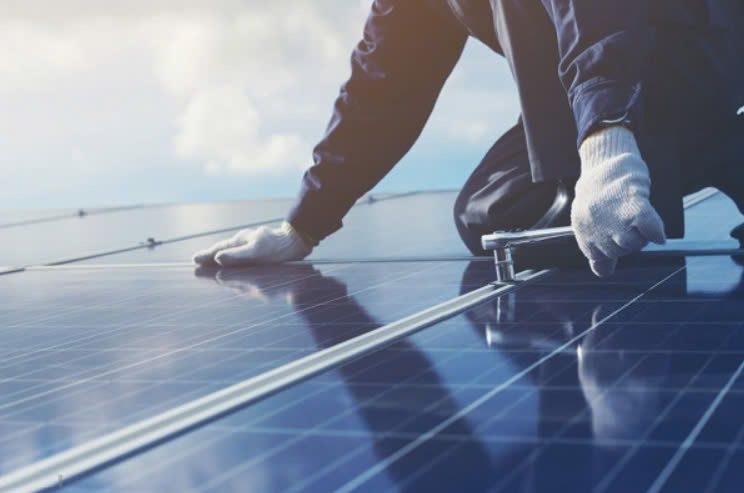Amidst the global energy transition, rooftop solar power is gradually becoming an indispensable solution in Vietnam, particularly within industrial parks and export processing zones. Recently, the Prime Minister directed the Ministry of Industry and Trade to research allowing transactions and the buying and selling of self-used rooftop solar power. This move aims to encourage businesses and individuals to participate in the production and consumption of clean energy.

Rooftop solar power has seen significant growth in Vietnam in recent years. According to EVN, as of 2023, there were over 103,000 rooftop solar projects nationwide with a total installed capacity exceeding 9,500 MW. However, current legal regulations still impose restrictions on the sale of electricity between individuals and businesses, particularly in industrial zones where energy demand is high and the potential for self-production from rooftop solar is substantial.
A key proposal was put forward by Dr. Cao Anh Tuan, an independent expert on the electricity market. According to this proposal, businesses could collaborate with third parties to invest in rooftop solar systems. These systems would generate electricity and sell it directly to the businesses under a self-production, self-consumption model. This presents a significant opportunity for businesses to reduce electricity costs while optimizing the use of solar energy resources.
In fact, some large companies in Vietnam have already begun experimenting with this model. At Dong Nai Port, a rooftop solar power system, invested by Nami Solar, has been in operation since 2021, helping the business significantly reduce electricity costs. This system not only provides clean energy but also generates additional revenue by selling surplus electricity back to the grid. This demonstrates the great potential of the self-used solar power trading model in promoting sustainable development for businesses.
However, current legal barriers remain a significant challenge. Under the existing regulations, rooftop solar power can only be sold to large consumers with an average monthly consumption of at least 200,000 kWh. This limits the ability of small and medium enterprises to capitalize on solar energy. The Ministry of Industry and Trade is currently considering expanding this regulation to allow organizations and individuals within the same industrial park or export processing zone to trade electricity with each other, without needing to go through the national power grid.
One clear benefit of allowing self-used rooftop solar power trading is the potential to reduce pressure on the national grid, especially as electricity demand continues to rise. According to forecasts by the Ministry of Industry and Trade, by 2030, electricity demand in Vietnam will nearly double compared to 2020. This calls for new solutions to meet energy needs while ensuring environmental sustainability.
In summary, the research into and potential approval of transactions and trading of self-used rooftop solar power could unlock many new opportunities for businesses and consumers in Vietnam. This is not only an effective solution to reduce energy costs but also an important step in promoting the development of renewable energy while contributing to the sustainable growth of the national economy.
By studying and drawing lessons from successful models abroad, the Ministry of Industry and Trade can help Vietnam establish an appropriate legal framework, paving the way for the robust development of the renewable energy sector in the future.